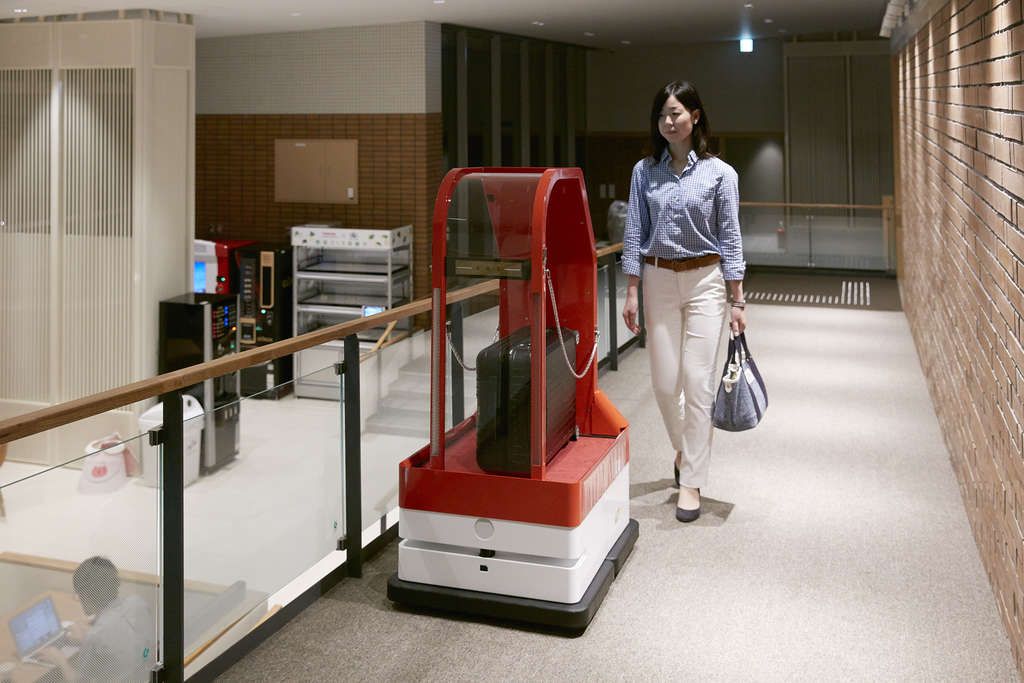Henn-na: productivity and functionality


In the summer of 2015 the owners of a Japanese theme park called Huis Ten Bosch opened the first ever robot hotel. The reason to build a high-tech hotel is simple, according to Kataro Takada, head of corporate planning at Huis Ten Bosch: "Japanese society is aging rapidly. All over the world, this is an issue, but the issue is more pressing in Japan. It has led to a worrying lack of workers in the hotel industry. If we don't come up with solutions, the future of the hotel industry is at risk." This is particularly true for Japan, considering the number of tourists has doubled from 2015 to 2016.
A quick look inside the hotel tells you the whole story: a robot window cleaner washes windows; Roomba cleans the floor. A 5-m2 room with glass windows functions as cloakroom: in the middle, a robot - originally produced for the car manufacturing industry – that can handle the luggage storage by itself (up to 15 kg). All of this happens in a matter of seconds. Most of the typical human tasks are outsourced to robotics: check-in is done by one female humanoid called Kibo and two (robot) dinosaurs: Mirai and Yumeko. Guests can check-in via voice recognition. The next step is to place your luggage on a robot trolley that drives to your room automatically. No need to use a key to enter the room: you simply hold your face in front of a face scanner and voila: the door will open. Inside the room, you will find an ordinary room, with one exception: a robot called Churi-chan can wake you up, tell you the weather forecast and you can switch the light on and off. All of this is done via voice recognition.
Takada: "Since we want to keep the construction costs low and the hotel functional and efficient we decided to leave out TVs and a minibar. However, after complaints from guests, we decided to install these anyway." Hence, the hotel does not advertise itself as luxurious, rather it sees itself as a hotel of the future, cutting down costs and extremely efficient.
